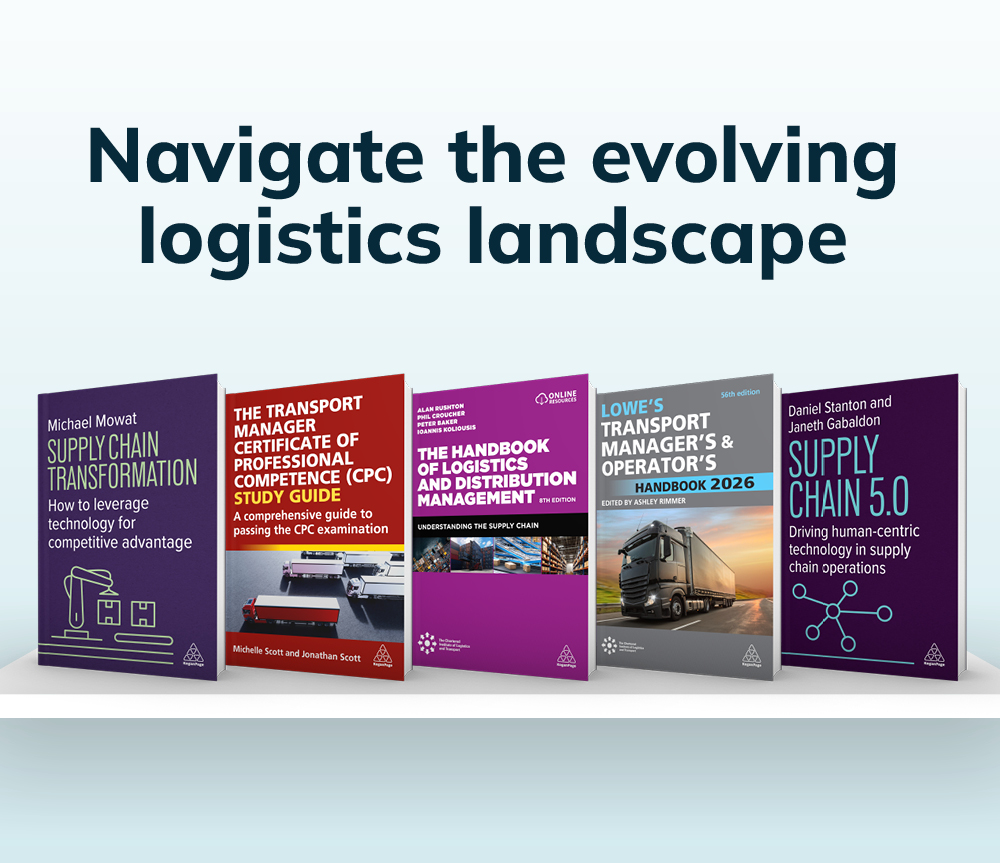FREE UK and US shipping | Get the ebook free with your print copy when you select the "bundle" option | T&Cs apply
Logistics, Supply Chain & Operations Books
Latest books in Logistics, Supply Chain & Operations
Trending books
Latest insights in Logistics, Supply Chain & Operations
Logistics, Supply Chain & Operations, Transport, Sustainable Logistics, Sustainability The transport industry is under pressure to reduce emissions and improve efficiency. In this article, Ashley Rimmer explores ways that transport operators can achieve a more sustainable and cost-effective fleet for sustainable transport.
Procurement, Logistics, Operations Discover the key governance components that organizations must implement to enable effective Category Management.
Sustainable Logistics, Supply Chain, Operations Supply chains are not immune to disruptions. However, creating a system where your network is both agile and resilient to problems, will help future-proof your business in the long run.
Publishing soon







